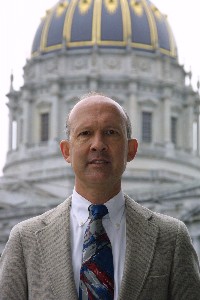Off topic: Actor or actress? The gender dilemma. Thread poster: Gary Smith Lawson
|
|---|
In Spain there has been a tendency over the last 10 years or so to invent feminine forms of masculine nouns for professions, even when there exists a perfectly neutral word already. "Presidente", for example can be masculine or feminine, yet for the sake of supposed political correctness the word "presidenta" has been invented for female presidents. Does this happen in other countries? As if politicians didn't use too many words already, nowadays it has got to the stage in Spain where they have ... See more In Spain there has been a tendency over the last 10 years or so to invent feminine forms of masculine nouns for professions, even when there exists a perfectly neutral word already. "Presidente", for example can be masculine or feminine, yet for the sake of supposed political correctness the word "presidenta" has been invented for female presidents. Does this happen in other countries? As if politicians didn't use too many words already, nowadays it has got to the stage in Spain where they have to repeat every profession, saying "trabajadores y trabajadoras" (workers and "workesses"; in the plural the word is neutral anyhow, so again the feminisation is irrelevant), and recently the female "minister for equality" famously came out with the ridiculous "miembros y miembras". Surely if a woman does the same job as a man she should be treated the same linguistically to set an example that they are equal.
Is it not a step back to differentiate between sexes in professions? Obviously in English the dilemma does not exist, but nowadays people use "actor" to refer to actresses, for example, which would seem to indicate that English speakers are going in the opposite direction. Any opinions?
Me gustaría recordar a ciertos políticos y miembros de la Real Academia Española que los hombres también son personas (¿o personos?) que pueden ser víctimas (¿víctimos?) de abusos lingüísticas.
Si una “jueza” hace el mismo trabajo que un juez, ¿por qué tanto debate por referirse a su profesión con el mismo nombre? Mucho ruido y pocas nuezas, digo nueces, que ya no me aclaro. En inglés ya no hay por qué decir “actress” (actriz) sino sólo actor, tanto para mujeres como hombres (para no diferenciarse entre ellos, y para ahorrar tinta a las periodistas y los periodistos). La dirigente alemana es una “canciller” en su propio país, pero en españa la convierten en una cancillera.
Basta ya. Si diferenciamos entre trabajadores y trabajadoras (y miembros y miembras como dijo una ministra española hace poco) es más fácil justificar pagar menos a las últimas, como de costumbre. Para mí, seguiremos siendo tod@s trabajadores iguales (y ya veo que el teclado de mi ordenador está de acuerdo). Parece que algunos políticos deberían cambiar sus políticas.
¿En otros países también se femenizan todas las profesiones hasta la saciedad con el supuesto propósito de buscar la igualdad? ¿Por qué no hacer el uso de la terminación "@" oficial? ▲ Collapse
| | | | Latin_Hellas (X)
United States
Local time: 01:32
Italian to English
+ ...
| Waste of Energy | Mar 7, 2009 |
Trifles that become issues like this are emblematic of the crisis the world is facing right now, as if we really have excess energy to burn and pollute the atmosphere with, truly asphyxiating.
To answer your question, for English, I would point to the utter confusion in the use of the third person possessive pronoun for which, it seems, that the third person plural, which does not inflect for gender, now sort of acts also as a third person singular neuter.
[Edited at 2009-0... See more Trifles that become issues like this are emblematic of the crisis the world is facing right now, as if we really have excess energy to burn and pollute the atmosphere with, truly asphyxiating.
To answer your question, for English, I would point to the utter confusion in the use of the third person possessive pronoun for which, it seems, that the third person plural, which does not inflect for gender, now sort of acts also as a third person singular neuter.
[Edited at 2009-03-07 09:12 GMT]
[Edited at 2009-03-07 09:13 GMT] ▲ Collapse
| | | | | Important trifles | Mar 7, 2009 |
I totally agree that this SHOULD be a trifling issue that has been blown out of all proportion at least in the Hispanic world; clearly politicians and civil servants have nothing better to do with their time and our money. Still, it sometimes creates a translation dilemma.
I'm not so sure that the third person plural or the singular "one" always solves this.
Another curious concept is the use nationalists make of the 1st person plural to refer to events that happened centuries ago.
| | | | Susan Welsh 
United States
Local time: 19:32
Russian to English
+ ...
Gary Smith wrote:
Obviously in English the dilemma does not exist...
Well, it does exist, and there's a lot of politically correct hot air expended over this non-issue in English as well. My approach is to write "he or she" occasionally, when it doesn't get clumsy. But if you have it many times in one sentence or paragraph, it gets ridiculous. "Mankind" has no gender, any more than "Mensch" or "Menscheit" do in German. As to actors and actresses, I would use the same rule of thumb. If you're talking about people from both genders who are members of the acting profession, call them whatever seems best in the context.
Of course if you're working for a client that thinks this is a big deal, then you should translate the way they want it. You can always ask them.
| | |
|
|
|
| cancillera etc | Mar 7, 2009 |
Well, looks like I was wringly informed about the German head of state, thanks for that. Still, it does seem that in English-speaking cultures less importance is attached to the whole gender matter (I myself don't see the relevance, but then I both speak and am English). However, it has to be taken into account in the language we're translating to/from. (The same thread in Spanish curiously seems to arouse much more interest and information).
| | | | | Opinion on the gender issue | Mar 7, 2009 |
This may not answer your question, Gary, but here is what I think about the gender issue in language.
It would seem that those who invent feminine equivalents to certain names of professions are fighting for gender equality. Many of them seem to be displeased that masculine nouns are used to designate females. However, I think that inventing feminine equivalents is leading us exactly in the opposite direction - inequality. By using a different name for females, we are underscoring t... See more This may not answer your question, Gary, but here is what I think about the gender issue in language.
It would seem that those who invent feminine equivalents to certain names of professions are fighting for gender equality. Many of them seem to be displeased that masculine nouns are used to designate females. However, I think that inventing feminine equivalents is leading us exactly in the opposite direction - inequality. By using a different name for females, we are underscoring the fact that women and men are different. How is that going to push society towards equality? Obviously, I am against gender-specific profession names.
I use the female equivalent of names of professions where the female equivalent has been widely accepted for a long time, and so, I am a traductrice and not a traducteur. But feminine names of professions such as professeure, docteure, auteure and my personal favorite, écrivaine (ouch!), are a no-no for me (they also have a tendency to hurt my ears - many of them sound plain ugly to me). Having said that, actrice sounds more natural to me than acteur. ▲ Collapse
| | | | | The theatrical profession | Mar 7, 2009 |
I note that in Britain nowadays actresses are usually referred to as actors. I think this may have arisen because, in certain lowbrow papers, the word "actress" (with the inverted commas round it) was sometimes used about the mistress of some politician or pompous bigwig when the scandal broke and seemed to imply "a woman of easy virtue". Thus, genuine female members of the theatrical profession started to dislike being referred to as actresses and thought it more dignified to be called actors.<... See more I note that in Britain nowadays actresses are usually referred to as actors. I think this may have arisen because, in certain lowbrow papers, the word "actress" (with the inverted commas round it) was sometimes used about the mistress of some politician or pompous bigwig when the scandal broke and seemed to imply "a woman of easy virtue". Thus, genuine female members of the theatrical profession started to dislike being referred to as actresses and thought it more dignified to be called actors.
Some "feminised" words seem somewhat derogatory or belittling - for example "poetess" and "authoress" - and I imagine that female writers probably prefer to be referred to as poets and authors.
Just my view - not intended to be inflammatory or to "heat up" the thread!
Best wishes,
Jenny ▲ Collapse
| | | | Ted Stroll 
United States
Local time: 16:32
Portuguese to English
| Actors and actresses | Jan 7, 2011 |
I dislike it when the U.K. Guardian calls actresses actors, as it always seems to do. To me it sounds deadeningly neutral. Conversely, I think the women in question are entitled to call themselves actors if they prefer, although I wish they wouldn't and would tell them that it sounds strange and wooden. There is nothing demeaning about referring to thespians of each sex by their traditional names. Nor is such sex-based terminology outdated, unlike such terms as aviatrix, testatrix, mailman/postm... See more I dislike it when the U.K. Guardian calls actresses actors, as it always seems to do. To me it sounds deadeningly neutral. Conversely, I think the women in question are entitled to call themselves actors if they prefer, although I wish they wouldn't and would tell them that it sounds strange and wooden. There is nothing demeaning about referring to thespians of each sex by their traditional names. Nor is such sex-based terminology outdated, unlike such terms as aviatrix, testatrix, mailman/postman, and stewardess. ▲ Collapse
| | | | To report site rules violations or get help, contact a site moderator: You can also contact site staff by submitting a support request » Actor or actress? The gender dilemma. | Wordfast Pro | Translation Memory Software for Any Platform
Exclusive discount for ProZ.com users!
Save over 13% when purchasing Wordfast Pro through ProZ.com. Wordfast is the world's #1 provider of platform-independent Translation Memory software. Consistently ranked the most user-friendly and highest value
Buy now! » |
| | CafeTran Espresso | You've never met a CAT tool this clever!
Translate faster & easier, using a sophisticated CAT tool built by a translator / developer.
Accept jobs from clients who use Trados, MemoQ, Wordfast & major CAT tools.
Download and start using CafeTran Espresso -- for free
Buy now! » |
|
| | | | X Sign in to your ProZ.com account... | | | | | |









